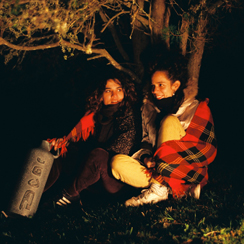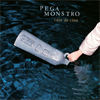
- HOME
- ABOUT
- ARTISTS
A.P.A.T.T. APOSTILLE BAMBOO BARR BERTIE MARSHALL BIRD NAMES BRONTEZ PURNELL BUFFET LUNCH CHESTER ENDERSBY GWAZDA CHOPS CLEAR HISTORY CLECKHUDDERSFAX COLD PUMAS CONSTANT MONGREL DARLENE SHRUGG DEATH SENTENCE: PANDA! DEERHOOF DOG CHOCOLATE DRUM EYES EARTH BALL ED SCHRADER'S MUSIC BEAT ES ESQUILAX FEATURE FOOT VILLAGE FORMER GHOSTS FUTURE ISLANDS GAY AGAINST YOU GARY WAR / PURPLE PILGRIMS GEN POP GENTLE FRIENDLY GOWNS THE GREEN CHILD GUN OUTFIT GUTTERSNIPE HALO HALO HANDLE HANDS ON HEADS HASH REDACTOR HELHESTEN HIGH PLACES HISTORICALLY FUCKED HYGIENE KAPUTT KIT LEOPARD LEG LINDA SMITH / THE SMASHING TIMES LUCKY DRAGONS LUNCH LADY MARCEL WAVE JOHN MAUS ME LOST ME MUNCH MUNCH NAKED ROOMMATE NICFIT NO AGE NO BABIES NORMIL HAWAIIANS NOTS NUMBERS PARSNIP PEEPHOLES PEGA MONSTRO THE PHEROMOANS PHILIP FROBOS PIKACYU-MAKOTO PLEASE PLUG PRIMO! QUINIE RAT COLUMNS RATTLE RAVIOLI ME AWAY RED CHANNEL ROBERT SOTELO ROBERT SOTELO & MARY CURRIE SAUNA YOUTH SCREENSAVER SEASON 2 SHAKE CHAIN SILVER FOX SCHOOL DAMAGE SOFTBOILED EGGIES SOILED MATTRESS & THE SPRINGS SLEEPER AND SNAKE SPIN SPIN THE DOGS SPRAY PAINT THE STICKS TERRY T.I.T.S THE TOADS TRASH KIT TRENCHER VEXX VINTAGE CROP VITAL IDLES WAY THROUGH WATER MACHINE WETDOG THE WHARVES THE WORLD XIU XIU XIU XIU / PARENTHETICAL GIRLS YIKES
- BLOG
- LINKS
- SHOP
- TOURS
- TICKETS
PHOTOS
|
HI RES DOWNLOADS |









|
|
Photos by Sara Rafael. |
ABOUT PEGA MONSTRO |
Pega Monstro are sisters Julia Reis (drums) and Maria Reis (guitar), both sing! The duo's name translates as 'catch the monster', perfectly countering the band's striving dream-punk sound. The name 'Pega Monstro' also references a novelty toy in the shape of a jelly hand on a string, which children have been throwing at each other in delight for many generations in their native country. Born and raised in Lisbon, Portugal, Maria and Julia have been playing music together since they were 15 and 17 respectively, in other groups first before resolving on becoming a duo. Back in 2010, both sisters started a record label, along with some of their musician friends, called Cafetra Records to document Portugal's garage punk scene. Cafetra represents a community of like-minded musicians who all help each other, making music that they'd want to hear, powered by enthusiasm. Pega Monstro released their self-titled debut album on their own Cafetra imprint in 2012, with national critical acclaim meeting the raucous garage-rock inflected record. Whilst, 2015 saw Pega Monstro team up with Upset The Rhythm for their impressive and more sonically developed 'Alfarroba' album that led to international attention. Now Pega Monstro return with their third album entitled 'Casa de Cima', which translates as "Upper House". The album shares its name with the Villa in which the album was recorded, nestled amongst the pine-scattered terrain of the Sintra mountains. 'Casa de Cima' was recorded through September 2016 by Leonardo Bindilatti, who also produced their last record. |
PEGA MONSTRO RELEASES |

'CASA DE CIMA'
Partir a LoicaUTR094 | CD / LP | 7 tracks, 33 mins | Buy
'Casa de Cima' opens with 'O Miguel' its first line translating as "I changed the strings on my guitar". Like the first line of a spell, the words entreat you to hear how much Pega Monstro have grown in confidence and vision, they are trying something new. There is no rush, only effortless intent, they sound compelling and assured and let the song unfold in its own leisure. The stunning 'Partir a Loica' follows with its stammering rhythms and soaring, swirling vocals. The song's title, literally "break all the dishes", is a saying in Portugal meaning to shake things up and exceed expectations, a worthy title indeed. Much like the mysterious water jug on the cover of the album, burnished with unknowable symbols suggesting art-deco hieroglyphs, Pega Monstro constantly reach for something beyond plain comprehension, stretching songs to their limits before collapsing them back into new, more interesting forms. The Portuguese poet and writer Fernando Pessoa had a similar mutable approach to his work, inventing over seventy different pen names, called heteronyms, to act as conduits for the limits of his imaginative writing. Pega Monstro recite one of Pessoa's poems called 'O moinho de cafe' during the third act of their epic yet romantic track 'Cachupa'. Having their home city of Lisbon in common, Pega Monstro untether Pessoa's words from the city's fixated tourist treatment and let them breathe back their soul. The band's approach to song has always been both refreshing and eloquent and 'Cachupa' is a good example of how natural and spontaneous Pega Monstro can sound. The second half of the album starts over with the enthusiastic track 'Pouca-Terra', all racing chords and clouds of cymbal, building to a beautiful textural density and ecstatic finale. The studio dynamics have also kept up with Pega Monstro's evolving compositions, pushing songs like this further into the group's own unique atmosphere. Pega Monstro nurture their songs, letting them follow tangents, take risks, fall over even if it means they sound more alive. There's a sense of sisterly oneness and provision apparent in their music allowing Pega Monstro to sound instinctual yet awash with ideas. 'Fado da Estrela D'Ouro' and 'Sensacao' are decidedly delicate in manner, drawing on themes of equal restlessness and wistfulness. 'Sensacao' even concludes with the sisters singing the traditional Portuguese folk air "At the door of the holy souls, God knocks every hour". Their songs are given the space to grow on their own terms. Finally, 'Odemira' draws 'Casa de Cima' to a close in triumphant style. Drums and guitar chase each other feverishly, galloping ever faster before breaking into calmer clearings of hushed vocal reverie and serene falsetto. It's in this last song that we find, not only the conclusion - the record's sense of being whole - but also the most emotional side of Pega Monstro. This album was written and recorded with the strong presence felt of the band's family, along with a certain freedom that can only be attained by the unconditional and critical support of all their loved ones. 'Casa de Cima' has its eyes firmly set on the heavens and is courageous enough to climb mountains to get closer to them.
|

ALFARROBA
Braco de FerroUTR072 | CD / LP | 10 tracks, 36 minutes | Buy
'Alfarroba' is the name of this, it's title meaning 'carob', after the sweet tasting bean that grows in the wild trees that spontaneously spring up along the Mediterranean coast. Maria explains further, "In Portugal there are a lot of carob trees in the Algarve and our mother's side of the family is from there, we spent every summer there as children. The scent is unlike any other. So apart from the phonetic appeal of the word, 'Alfarroba' is also a homage to that heritage". The songs on 'Alfarroba' deal with many themes, some universal topics like love and growing up, others focusing on the nature of writing songs themselves, whilst some try to make sense of the world from a female perspective. 'Braco de Ferro' kick starts the album with torrents of energy, translating as 'arm wrestling' the song's title is apt for a track so full of back-and-forth, 'no prisoners' phrasing. Julia and Maria excel at bouncing ideas off each other, snare rolls trigger flights of guitar, fogs of cymbal form steps for the vocal to climb. "My only problem is that near you I feel so weak" they sing over and over again, there's an honesty present that goes deep. The lyrics have a very conversational feel to them, Pega Monstro sing as they would speak, directly into your head, avoiding poetics. 'Estrada' for instance fortifies itself with a cement-solid riff, allowing the vocals to float and drift across the occasional lilting melodic refrain. The inevitable satisfaction that comes with repetition is shown off to full effect here, with the immense rhythm resuming when the time comes for the song's mesmeric downpour to dissipate. "I'm going out on the road to see who I am" they sing in unison, breathing myth into their everyday anxieties. 'Branca' is a song with a propulsion so compelling that it's hard not to just start spinning around with your arms trailing out like helicopter blades. The vocals drive against the drums, the drums push up against the guitar, it all feels gloriously lightheaded and overridingly positive in attitude. Songs like 'Fado D'Água Fria' and 'És Tudo O Que Eu Queria' also showcase the Pega Monstro's more reflective mood too, with both songs pausing for the clouds to pass, delivering some well-anticipated melancholic moments to offset the album's otherwise dizzying ascent. 'Alfarroba' was produced and mixed by Leonardo Bindilatti, a good friend of the band and Cafetra Records. Bindilatti has worked on many releases from the close-knit group of bands from Lisbon, including his own Putas Bebadas, this familiarity comes through on the recording too. Nothing feels rushed, there's a leisure afforded in getting everything sounding just right. Pega Monstro make rapturous music, it's brisk, it's contagious, it laughs at the language barrier and just keeps running headlong into more and more new ideas. 'Alfarroba' is not an exhaustive listen given that though, it's more like an antidote than an endless anecdote, as restless, impulsive and smart as the band that made it. |
LINKS |
PRESS |
LOUD & QUIETGORILLA VS BEARCLASH MUSICCRACKLOUDER THAN WARRAVEN SINGS THE BLUESSLUG MAGAZINEALL MUSICSUBBA-CULTCHATHE GIRLS ARE |
VIDEOS |
O MIGUELBRANCANAO CONSEGUESESTRADAES TU JA SEI |